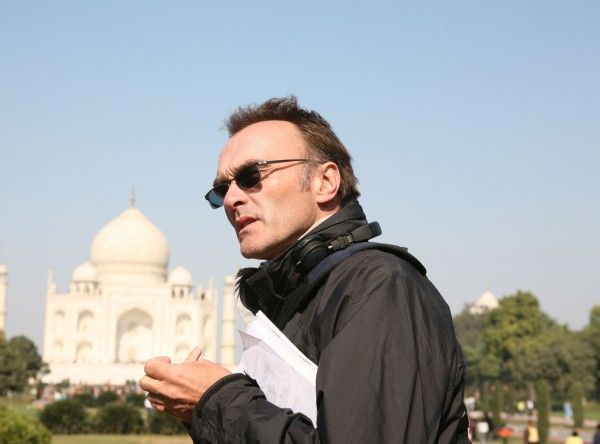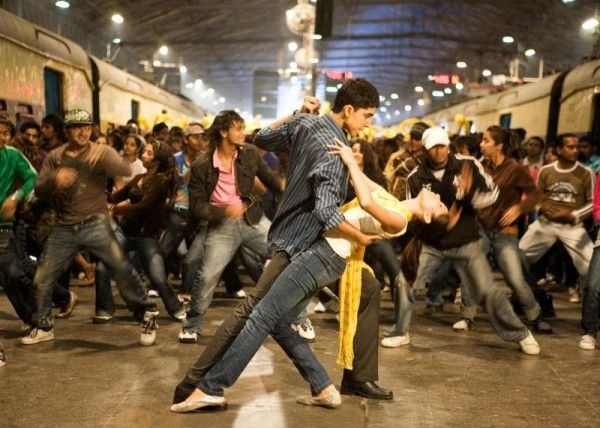As much as pundits like to think they can guess what’s going to happen, the Oscars can oftentimes be quite unpredictable. There have been a number of shockers over the last few decades (Shakespeare in Love over Saving Private Ryan, anyone?), but one in particular is a true Cinderella story: Slumdog Millionaire. Filmmaker Danny Boyle’s 2008 drama is set entirely in India, made up of a largely unknown cast, and nearly a third of the film is in Hindi. On paper, it’s no surprise that Warner Bros. almost skipped a theatrical release entirely, opting instead for a straight-to-DVD route. Of course the film did come out in theaters, and not only did it make a ton of money, it won eight Oscars.
To understand how Slumdog Millionaire became such an unlikely success, we have to first look at Boyle’s career in the mid-2000s. While the English filmmaker broke out in the 90s with Trainspotting and crafted a groundbreaking zombie tale with 2002’s 28 Days Later, at the time that he was approached to helm Slumdog Millionaire, he wasn’t exactly Oscar bait. His 2004 comedy Millions was a critical darling but failed to make much of a splash with audiences at large, and in 2007 he released a dark sci-film film called Sunshine. How the producers of Slumdog Millionaire knew Boyle was the right fit for a coming-of-age tale set in India is an enigma, but based on the strength of Simon Beaufoy’s script (adapted from Vikas Swarup’s novel Q&A), Boyle agreed to make the film.
The result was a thrilling, colorful, and artful tale that went to some dark places, but left audiences with a massive smile on their face thanks to its fairy tale ending—complete with a Bollywood number that runs over the credits. But while Slumdog Millionaire had the makings of a crowdpleasing hit, it was nearly dumped on the home video market thanks to the shifting Hollywood landscape.
Warner Independent Pictures acquired the North American rights to distribute the film in August 2007, a few months before filming began. But in February 2008, Time Warner announced that it would merge New Line Cinema into Warner Bros., and a few months after that Warner Independent Pictures was shut down entirely. This was a growing trend at the time, as the major studios had launched indie labels in the 90s and early 2000s in the wake of Miramax’s huge success and the boon of the indie film world. By the late 2000s, however, VFX-driven films were dominating the box office and the shine of the Miramax indie was wearing off.
So with Warner Independent shutting down, Slumdog Millionaire was absorbed into Warner Bros. Picture proper, and the major studio had serious doubts about Slumdog’s commercial prospects. They bumped the movie off of its November release date into 2009 while internally considering a direct-to-DVD release. Indeed, at this time, Warners was overloaded with films following the shuttering of Warner Independent, and was looking to offload some of its releases as it prepared for the fall movie season. In a true “hindsight is 20/20” moment, Warner Bros. chief Alan Horn had this to say about Slumdog Millionaire in August 2008:
"We're not going to give it away. If we can't find a buyer, then we'll put it out in a few markets--perhaps Chicago, New York and Toronto --and see if it works. I'm a big believer in letting the audience decide what it thinks. I like the movie. I just don't know how big the audience is for it."
Just a few weeks after this statement, it was announced that Warner Bros. would be selling 50% of its stake in Slumdog Millionaire to Fox Searchlight, with Fox handling the marketing and distribution of the film—which had now been set for a theatrical release in November. At this time, the film had already been accepted to the Toronto International Film Festival, and Horn was about to eat his words.
After months of uncertainty, Slumdog Millionaire finally made its world premiere at the prestigious Telluride Film Festival, where it picked up strong notices from critics. Reports out of those screenings underlined how audiences would clap along to the screen over the closing credits, and indeed when the film hit Toronto, it became a runaway hit. Not only were the reviews out of TIFF glowing, but Slumdog won the festival’s People’s Choice Award, kicking off a trend that would last over a decade. In the time since Slumdog won the People’s Choice Award, every single TIFF People’s Choice Award winner but one (2011’s Where Do We Go Now?) has gone on to earn a Best Picture Oscar nomination, and three out of nine went on to actually win the top Oscar prize.
But this trend wasn’t a “thing” at the time, so the People’s Choice Award wasn’t yet a harbinger of Oscar glory. Still, Fox Searchlight knew they had something special on their hands, and bolstered by the strong reviews began positioning Slumdog Millionaire as an Oscar movie.
The film was released in just 10 theaters on November 14th, and Fox Searchlight moved forward with a very carefully planned platform release, expanding the number of theaters slowly but surely over the course of November, December, and January before expanding wide on January 23rd—the weekend after the film picked up a whopping 10 Academy Award nominations.
This release strategy turned out to be golden as Slumdog was consistently earning money weekend after weekend for three months, and when all was said and done, Slumdog Millionaire grossed $141.3 million domestic and $236.5 million internationally, for a worldwide total of $377.9 million—against a budget of just $15 million. And again, it should be emphasized, this was all for a movie set in India with no movie stars where a third of the dialogue is not in English.
But Slumdog Millionaire was the little engine that could, largely thanks to its crowdpleasing quality. Even when it scored 10 Oscar nominations, more standard Oscar fare like Milk or The Curious Case of Benjamin Button felt like safer bets for the top prize. But not so. Against all odds (literally—the film picked up zero acting nominations, which is traditionally a deal breaker for winning Best Picture), Slumdog Millionaire won eight Oscars in total, including Best Picture, Best Director, and Best Adapted Screenplay. Danny Boyle and the film’s young stars were the belles of the ball, and suddenly this little film that was nearly dumped by its studio was a genuine Oscar juggernaut.
Slumdog Millionaire would also be the final Best Picture winner before the Academy expanded the field of nominees from five to potentially 10. This was largely to due with the unexpected snubbing of The Dark Knight, which most expected to earn a Best Picture nomination, only for the wholly forgettable The Reader to take its place— a classic case of Harvey Weinstein’s strong-arming tricks. But Slumdog’s win also came at a changing time for the Academy as a whole. Just the year before, the Coen Brothers’ exceedingly dark No Country for Old Men won Best Picture, and the year after Slumdog, the lowest-grossing winner in history—The Hurt Locker—beat out populist pick Avatar.
Populist films would continue to win here and there as the years wore on and forgettable charmers like The King’s Speech and The Artist took home the top trophy, but as the Academy’s votership grew younger and more diverse, stunning artistic achievements like Moonlight and The Shape of Water began to win out. The curious thing about Slumdog Millionaire is that while the film is unabashedly populist entertainment, it’s also very artfully crafted and, in many ways, still unique. One wonders if Slumdog Millionaire might still be able to pull out a win if it were nominated in today’s landscape.
Whatever the case, Danny Boyle’s Oscar juggernaut solidified its place in Academy Awards history against impossible odds. It remains one of the more improbable Oscar stories in recent memory, and yet it’s also incredibly fitting given the “rags to riches” tale at the heart of the film. 10 years on, Slumdog Millionaire is anything but a forgettable Oscar winner.






